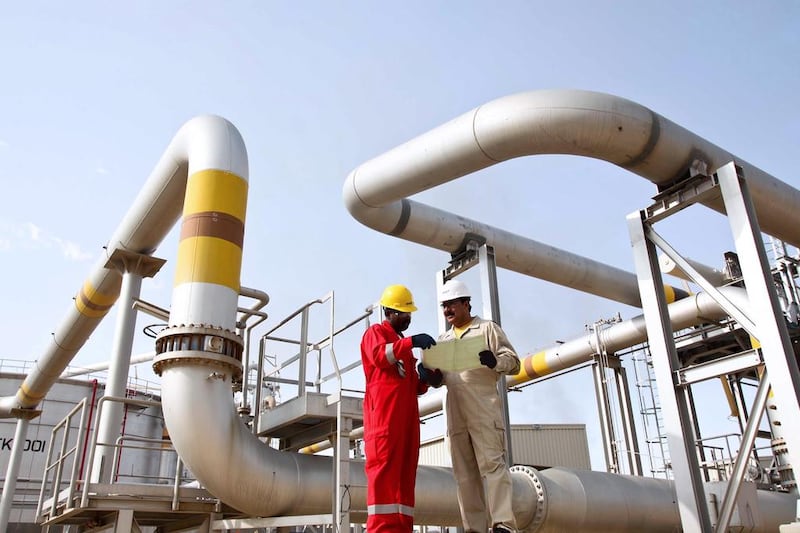The Middle East remains a bright spot for Amec Foster Wheeler’s oil services business, the company reported yesterday, even as margins are squeezed worldwide after last year’s oil price plunge hit capital spending in the sector.
In its first report as a merged entity, following Amec’s US$3.2 billion takeover of Foster Wheeler in November, the company reported that its “scope” revenue – which strips out procurement revenue that is passed through to clients without margin – was 2 per cent higher at £3.9 billion (Dh21.2bn), while trading profit was 6 per cent lower at £321 million.
The company also reported pro forma results of the combined group showing scope revenue hardly changed on the year, at about £5.5bn for 2014, while trading profit was down 15 per cent at £457m, reflecting foreign exchange losses.
Shares in Amec Foster Wheeler fell on the London Stock Exchange in line with a broader market sell-off, and were down 35 pence at 938 pence at midday London time.
As with most companies in the sector, Amec’s shares are down from last year’s peaks after the oil price plunge. However, they have recovered sharply since the beginning of this year, partly because of cost cutting that has eliminated 2,000 jobs. The stock price’s decline of about 15 per cent since last year compares to losses of between 20 and 50 per cent for bigger firms, such as Halliburton, Technip and Saipem. Amec’s chief executive, Samir Brikho, said the group differs from those oil services companies as it is involved more “above ground”, in managing projects for clients, rather than in owning and leasing equipment, such as jack-up rigs.
This has directly benefited the company during the downturn, especially in the Arabian Gulf, he said. “Our job in the region tends to be as project manager or [engineering, procurement, and construction] manager, where we are acting on behalf of a client, like a national oil company, and managing, say, a Korean engineering firm on a project,” said Mr Brikho.
This is important when oil prices were high and cost inflation on projects was running up strongly. But it has remained important even as oil prices slumped.
“Examples recently are a couple of projects in Kuwait where the Kuwaitis were expecting prices to fall because there are fewer projects for companies to bid on,” Mr Brikho said. “But because companies have seen such pressure on their margins, in fact they haven’t been bidding as aggressively. Bids came in 20 per cent higher than what they thought. So, Kuwaiti clients ask us to how to manage these projects on the same budget.”
The company said it has a strong order book in the Middle East – up 17 per cent on an underlying basis – and Mr Brikho said the additional business lines, such as clean energy and the greater geographical spread that the merger has brought will give the company a cushion from the oil downturn.
amcauley@thenational.ae
Follow The National's Business section on Twitter





